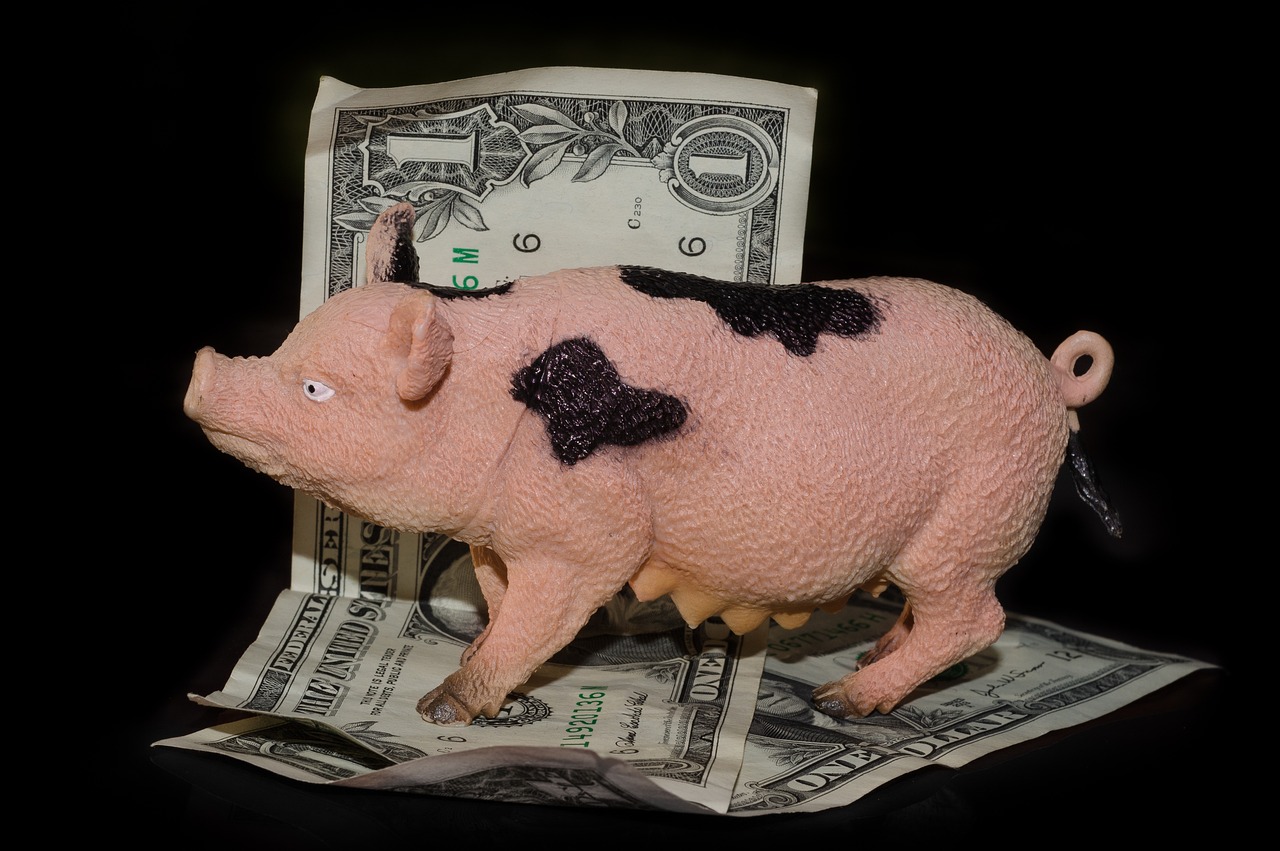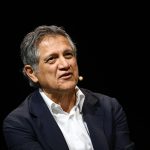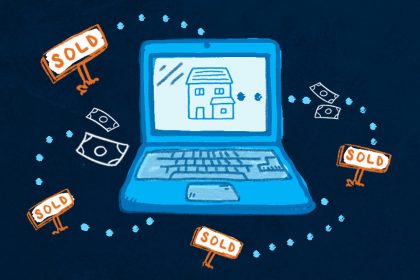We’ve all heard the phrase, “Be greedy when others are fearful, and fearful when others are greedy.” But what about being even greedier when others are greedy?!
As I sat peacefully in the hot tub recently, I began to recollect all the ways I wasn’t greedy enough since graduating from college in 1999. If only I had been greedier, I could have been richer and living a more fabulous lifestyle today.
Alas, at 47 years old with two young children, my time for maximum greed is over. I had my chance of getting ultra-rich for 25 years, but I blew it by jumping off the corporate ladder in 2012.
Not Being Greedier Can Hurt Your Wealth Potential
Make no mistake, this idea of being even greedier when others are greedy is a bull market phenomenon. With practically every asset at or near all-time highs, it’s hard not to lament about not taking more risks. In a bear market, the lack of maximum greed likely saves you from financial ruin.
We know that inflation and greed are the two biggest wealth destroyers. However, I’m not sure if people are taking enough risks with their one and only life. It’s very hard to get rich quickly without taking a lot of risk.
Surveying my friends who are rich, none of them got rich by buying index funds. Instead, all of them got rich by starting companies, investing in private companies that became successful, or becoming senior level executives.
Getting rich by 60 with a pot belly and grey hairs is fine. But if you want to experience financial freedom sooner, you must channel that greed into taking more risks. Let me share some of my regrets about being too cautious.
1) Took a job at Goldman Sachs in NYC instead of going to Shenzhen, China
After seven rounds and 55 interviews, I took a job as a financial analyst at GS in Manhattan. At the time, I figured I had gone through too difficult a gauntlet not to accept.
However, during the months of interviews, I was actually offered a job as a manager at an eyeglass parts factory in Shenzhen, China. This was nepotism at its finest because my father knew the owner, a businessman from Taipei, Taiwan.
If I had taken the job, my Mandarin would be excellent today. I probably would have had an ownership stake in the eyeglass parts business. And I likely would have built a deep roster of business connections in China that might have propelled me to a greater fortune.
Instead, I took the safe route by making a $40,000 base salary with a small sign-on bonus. I had always thought going to William & Mary, an inexpensive public college at the time, would allow me to take more risks compared to someone who went to an expensive private university.
Alas, I was too risk-averse because I simply didn’t feel financially comfortable knowing we lived in a modest townhome and drove an 8-year-old Toyota Camry. If tuition was much higher, I would have felt even more compelled to take the safe job.
The wealthiest people in the world are entrepreneurs, not employees. If I had gone to Shenzhen in 1999, I might have found a way to be 10X richer than I am today.
2) Only invested $3,000 in a stock that went up 60X
In 2000, while sitting on the international equities floor at 1 New York Plaza, I came up with the idea to buy a Chinese internet company called VCSY. The internet was the future and so was China.
I bought $3,000 worth of stock out of the total $12,000 I had in cash. Then I shared my idea around the trading floor and it caught fire. At one point, my VCSY shares were worth about $170,000 after just three short months.
I ultimately sold my shares when they were worth about $150,000. However, if only I had invested $10,000 or $12,000, like many of my other analyst classmates did, I could have walked away with $500,000!
With $500,000 at only age 24, I think I would have been set for life. Why wasn’t I greedier? Then again, maybe I would have blown it all on a fancy car and a bender in Vegas.
3) Bought a much cheaper property than I could have in 2003
I ended up using much of the VCSY windfall to put 25% down on a $580,500 condo in 2003. This was the first property I had ever bought and I was nervous as hell. By 2003, I had seen the NASDAQ lose about half its value.
The thing is, after saving 100% of my bonus and 50% of my salary for four years, I had enough to put 20% down on a sweet $1 million, multi-floor condo with Bay views. It was a three-bedroom, two-bathroom place in Cow Hollow with about 1,800 square feet.
If I had purchased the more expensive condo, my net worth would be about $1 million higher today. Not only that, I would have lived in a great place for several years and rented it out for more income too. Never sell your rental property if you don’t have to.
I wish I was less fearful as a 26-year-old and more greedy. I had career upside at that age, yet was too afraid given the aftermath of the Dotcom crash. The deli sandwich guy across our office kept telling me how he was worth millions and lost it all. I didn’t want to end up making sandwiches if I got let go from Credit Suisse.
4) Not starting Financial Samurai in 2006 when I wanted to
In 2006 I had just graduated from Berkeley’s Haas MBA program. I went part-time for three years because I was worried I’d get laid off given the collapse of the NASDAQ. I had applied in 2002. If I had gotten laid off, then I had the option of enrolling in the full-time program.
While in school, I took classes in entrepreneurship and marketing. I was inspired! I came up with the idea to start Financial Samurai, a personal finance site written by a finance veteran because I saw a hole in the market.
During this time, there was this 25-year-old guy in the Bay Area selling online courses on how to get promoted at your job. Yet, he only had one year of work experience or so. Then he wrote a book at 26 about how to get rich, while not being rich himself. And the public lapped it up!
Although it was obvious that most of his success was marketing given he lacked the experience, I didn’t want to go that route. Instead, due to honor and pride, I wanted to wait until I had 10 years of experience before starting Financial Samurai. As a result, I waited until July 2009 to finally launch.
Too much pride, and ironically, not enough desire for money.
I’ve always believed that money is too important to be left up to pontification. But if only I had been greedier for money, I would have launched in 2006 without the necessary experience. Then I would have figured it out as I went along.
If I had launched in 2006, Financial Samurai would be a much larger and more profitable site today. Maybe I would have created online courses and written books earlier, which would have created a larger source of passive income sooner.
The problem I had in 2006 was I felt indebted to Credit Suisse for paying for 80% of my tuition. Hence, I decided to work as hard as possible in my career to “pay them back.” When you have a good-paying job, you feel less of a need to take on any entrepreneurial risk.
However, if I had been hurting for money, I would have started Financial Samurai sooner. Then I would have written a lot more and figured out ways to monetize the site more. I feel this to be true because the Global Financial Crisis finally jolted me to start.
5) Not buying more tech stocks in 2012 after negotiating a severance
In 2012, I negotiated a severance package that paid for five years of normal living expenses. I was thrilled as it felt like I had figured out how to win a lottery.
After getting laid off, I was eligible to collect unemployment benefits, which I did. And to be eligible to keep collecting unemployment benefits, I had to submit where I had applied for work every two weeks. So I decided to apply to every promising tech company in San Francisco: Google, Facebook, Apple, Airbnb, you name it.
Ultimately, I got zero offers. I’m not even sure I got an official interview. Undaunted, I decided to buy shares in each of the public tech companies that wouldn’t give me the time of day. I figured, if I couldn’t work for them, they would have to work for me as a shareholder.
I remember buying $10,000 in several tech companies as a token of my defiance. Then I built these positions up to around $25,000 each over the next one or two years. The thing is, I had a six-figure severance check, which I dumped 100% of into a Dow Jones Industrial Average structured note product with downside protection.
Instead, if I had the courage to invest all of it in Apple, Google, or Meta, I would be $750,000 – $1 million richer today.
6) Should have invested more in a venture capital fund in 2018
In 2018, I had the opportunity to invest $250,000 in a friends-and-family round of a closed-end venture capital fund. The fund was about 5X oversubscribed because a star managing partner had left his previous firm to join this new one. However, I had just committed a large amount of capital to a private real estate fund the year before. I was worried about overcommitting to illiquid assets.
It turns out this venture capital fund invested in Rippling, an employment management software company in San Francisco, at a $300 million post-money valuation in April 2019. In 2024, Rippling raised a round of funding at over a $13 billion valuation, or 43X higher!
In the end, I only invested $140,000 in the venture capital fund, leaving around $350,000 on the table. Ugh. It always hurts the most when the opportunity was wide open and you don’t take full advantage.
7) Should have bought my forever home with a mortgage in 2023
In my monthly updated post, “How I’d Invest $250,000 Today,” I talk about how I’m a moderately conservative investor because I fear having to go back to work. If I have to go back to work before my daughter turns five, then I would have broken my promise of being a full-time father to both my children for five years.
As a result, I sold lots of stocks and bonds in 2H 2023 to pay for a new forever home in cash. In mid-2023, the S&P 500 had rebounded from its 2022 lows while the house I wanted had declined from its highs after 14 months. I also didn’t want to pay ~$10,000 to get a mortgage and go through the difficult process of qualifying for one when rates were high.
However, in retrospect, I should have taken out a $2 – $3 million mortgage to buy my home. Yes, I’d have to pay $12,000 – $18,000 a month today, but my stock portfolio would be worth $500,000 – $700,000 more in this impressive bull market.
My only saving grace is that my house’s price performance should have outperformed the Treasury bonds I sold to buy the house. Further, I think I’d face a lot of competition and get priced out if my house was relisted today.
Be Greedier In A Bull Market
If you want a chance at making a lot more money than your peers, during a raging bull market, be greedier when others are greedy. This means taking bigger positions, buying the dips, asking for bigger raises, and even taking on debt to buy risk assets.
Bubbles often expand larger and for longer than you think. By adopting an optimistic and positive mindset during a bull market, you’ll also feel mentally better. Psychologically, it’s hard to be pessimistic during good times.
Of course, stocks will eventually pull back. A recession will come again. And yes, you will likely lose a lot of money when the economy does turn – we’re talking 20% – 50% of your investment. Hopefully by then, you will also have a large enough cushion of gains because you’ve been so greedy for long enough!
Back To Reality We Go
This was a fun exercise, going through periods of time where I wish I had been greedier. The reality is, it’s always easy to look back in hindsight on what should have been done for optimal results.
Having more money today would be nice. If I had been greedier, I wouldn’t have lost my financial independence. Or maybe I would have simply bought an even more expensive house if I was richer, finding myself in the same situation as I’m in now. And if I was satisfied with the house that we had, I wouldn’t need to grind my way back to FI.
I’ve been hurt too much by financial losses in the past to go all-in anymore. My fear is losing 50% and needing to make back 100% to get back to even. That could take forever, and at my age, I feel I’m running out of time.
As a result, I’ve been careful to avoid as many landmines as possible on my path to financial independence. But if I hadn’t, maybe I would have lost a leg, but I would be millions of dollars richer today!
Eventually, you will discover how much money you need to be comfortable. When you do, your greed for more money will naturally dissipate. In its place will be the desire for more time.
The Last Investment Driven By Greed And Fear
There is one investment that I’m not going to hold back on, and that’s investing in artificial intelligence. I’ve allocated $500,000 to the sector with the hopes of dramatically outperforming the S&P 500 over the next 10-20 years. So far, I’m about $300,000 of the way in.
There’s definitely a lot of hype now, so my hope is that by investing in diversified funds, I’ll increase my chances of minimizing losses and maximizing returns. I’m also dollar cost averaging over the next several years into an open-ended venture product, so that should help too.
I fear AI will ruin the world for our children. Therefore, I’m investing today for them just in case there are no more good jobs in the future. If college is going to cost a ridiculous $500,000 – $800,000 for four years when they go, at the very least I can invest $500,000 in the technology today that might make them obsolete.
Readers, what are your thoughts on being greedier when others are greedy? What are some examples in your life where, if you had been greedier, you would be much wealthier today? How do you know when to pull back your greed so you don’t lose a lot of your profits? Are we all just wired differently in terms of how much money we want beyond a comfortable amount?
Read the full article here

















